$145k Genesis Electrified G80 sedan here in September
Luxury brand Genesis has confirmed Australian pricing for its Electrified G80 luxury sedan, ahead of its September arrival.
It lands in a single highly-equipped variant – including a solar roof – priced from $145,000 before on-roads.
This new flagship G80 is a twin-motor all-wheel-drive exec with 272kW, 700Nm and a WLTP range of 520km from its 87.2kWh battery.
Using an ultra-rapid 350kW charger, Genesis says it can charge from 10 to 80 percent in just 22 minutes, given optimal conditions.
The Electrified G80 has the same 800V electrical system as the Hyundai Ioniq 5 and Kia EV6, with maximum charging capacity of 350kW.
One for the SUV rejector
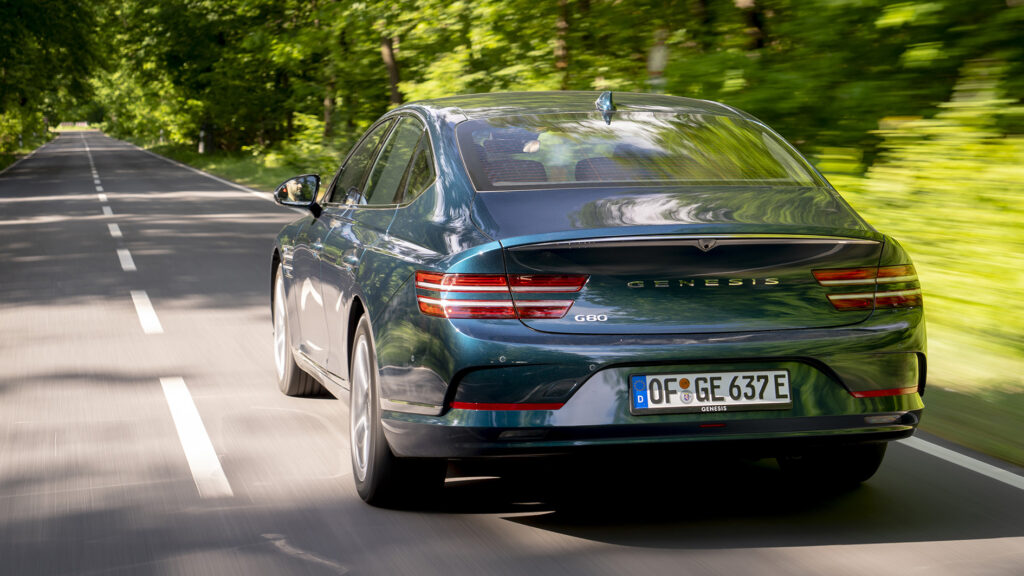
Similar in size to a BMW 5 Series or Mercedes E-Class (or soon-arriving EQE), the Electrified G80 joins the Porsche Taycan as Australia’s only full electric large passenger cars.
As Genesis prepares for a fully electrified range by 2030, Australians are soon to be bombarded by the Korean brand’s EV efforts as the GV60 EV and Electrified GV70 also land this September.
Genesis goes hard on ownership appeal, so Electrified G80 owners score five years of complimentary servicing to go with a five year/unlimited kilometre warranty.
There’s a five-year Genesis To You (they collect and deliver you car for services) and valet service; 10-years roadside assistance and a choice of five-year Chargefox subscription or a home AC charger and installation. Battery warranty is eight years.
What do you get?
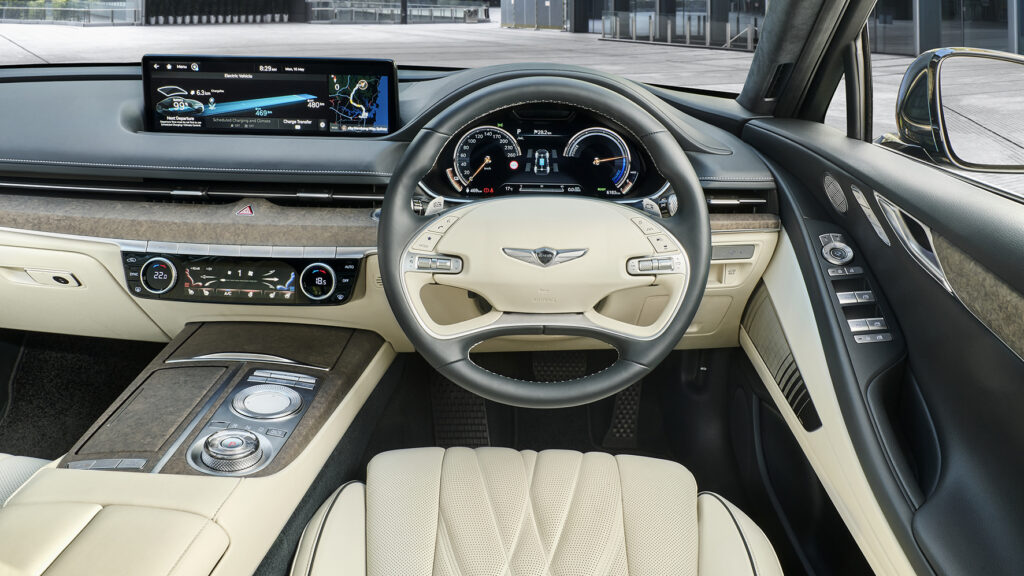
Motors are same front and rear – each providing 136kW and 350Nm. They help give the G80 a 0-100km/h time of 4.9-seconds, but in cruisier conditions the car switches between RWD and AWD to maximise efficiency.
A V2L (Vehicle-To-Load) feature means you can plug household electrical appliances into the car when in the great outdoors – think coffee machine or electric bike, for example.
Innovations include Active Noise Control-Road (ANC-R), which cancels road noise by creating sounds at opposite phase. Meanwhile, Preview Electronic Control Suspension (Preview ECS) uses the front camera to make suspension damping adjustments to manage detected bumps and potholes.
The aforementioned solar roof “enhances Electrified G80’s energy efficiency by generating supplementary electricity from sunlight,” Genesis says.
It’s not revealed how much potential range you could get on a blazing sunny day, but don’t count on it getting you across the Nullarbor in a hurry. It’s strictly a trickle charge.
Lavish interior
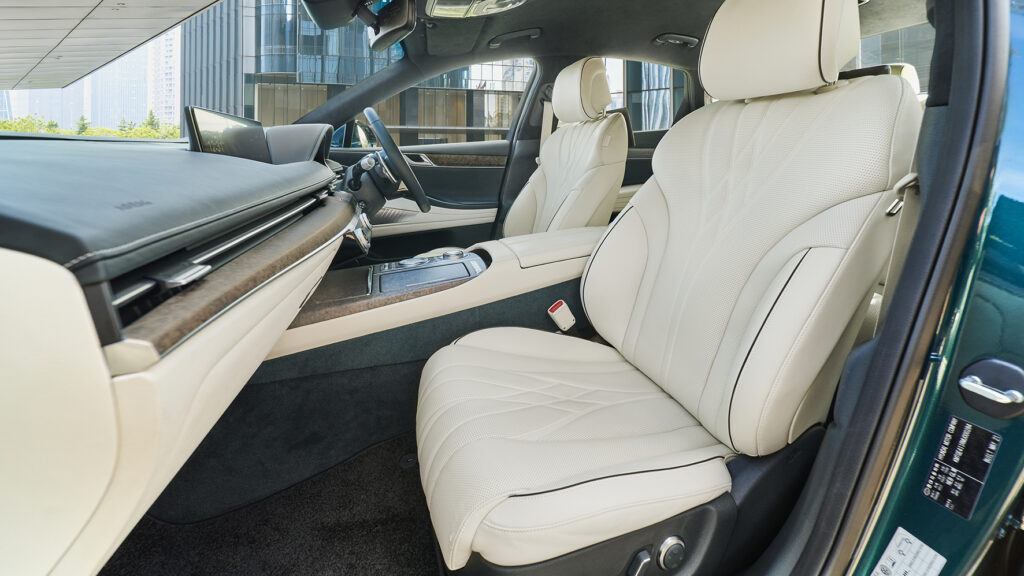
Inside you have the choice of black, brown, blue or white for your bespoke quilt-pattern Nappa leather-appointed seats.
The stunning 19-inch alloys, grille and bumpers are unique to the Electrified G80, while standard luxury kit includes 18-way electric driver seat, four heated seats, heated steering wheel, leather dashboard and centre console, wood garnish, carpet mats, ambient lighting, three-zone climate, power boot, soft close doors, wireless phone charging, four drive modes, remote start and remote parking assist.
Multimedia looks suitably extravagant. There’s a mighty 14.5-inch screen with navigation, a 6-inch haptic touch display, a pair of 9.2-inch screens as rear entertainment, Apple CarPlay/Android Auto (but not wireless) and 19-speaker Lexicon audio.
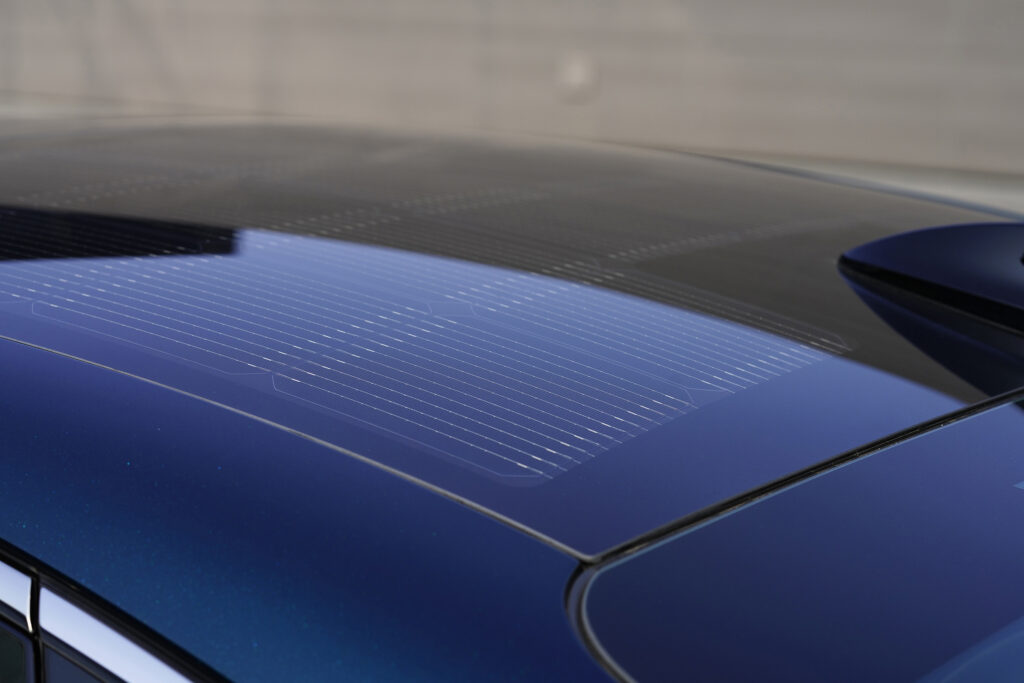
Safety-wise you score a leather appointed driver’s airbag (well, why not crash with some luxury?), every driver assist system you could imagine and a helpful surround view monitor to help park this big luxo barge.
The Electrified G80 won’t be the volume electric seller in Genesis’ range – its GV60 and GV70 SUVs will handle that – but to offer a proper, full electric large executive sedan before the likes of BMW, Merc and Audi is kudos-worthy indeed.

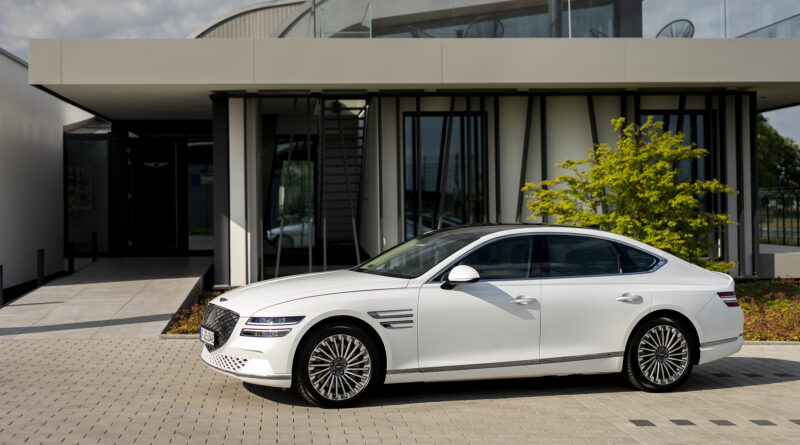
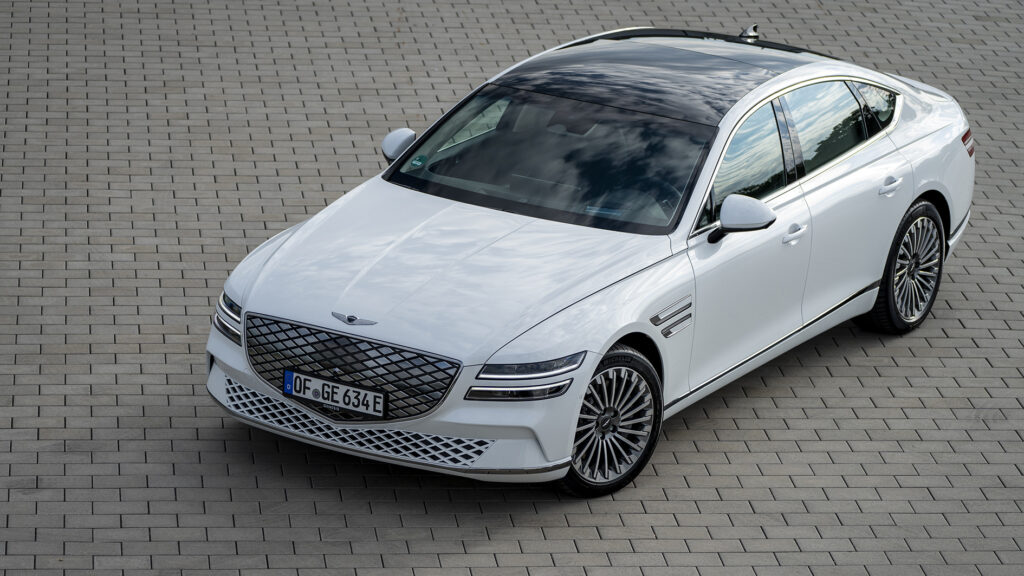
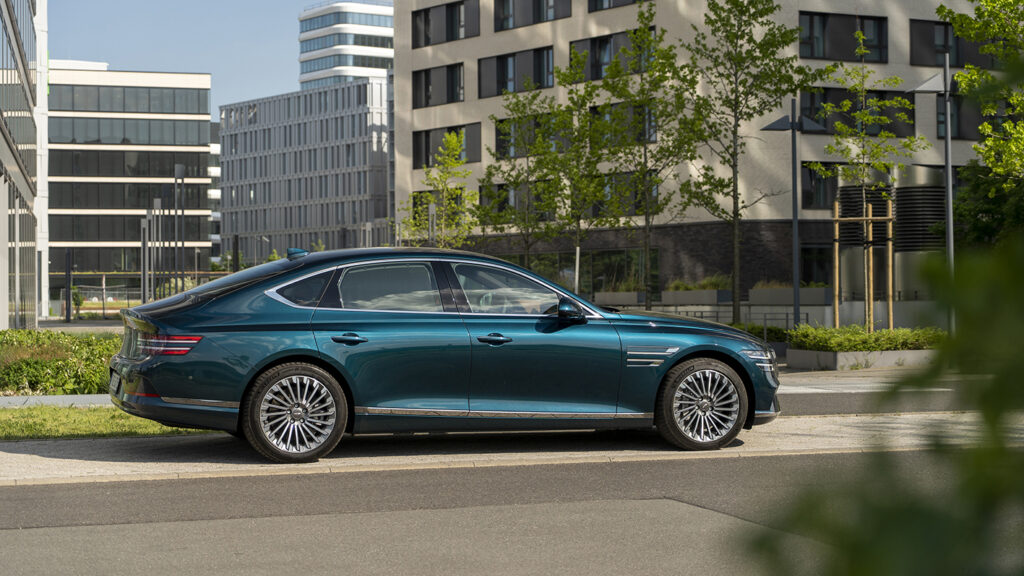
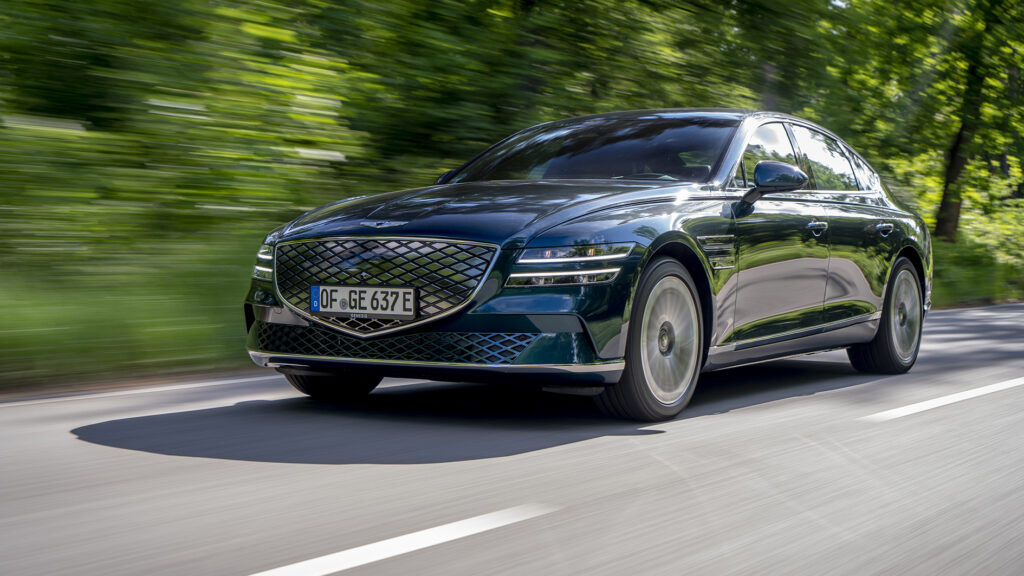
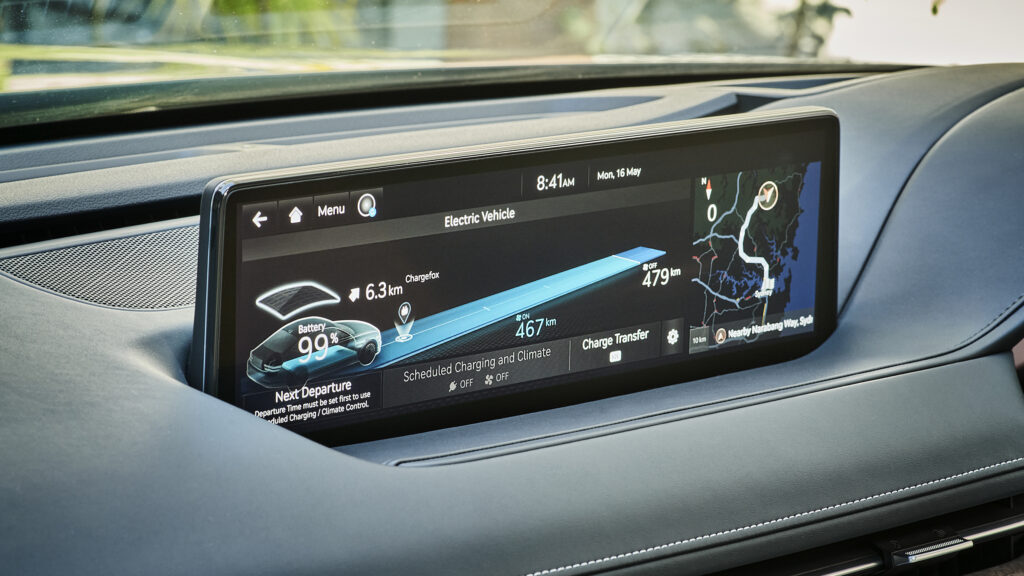
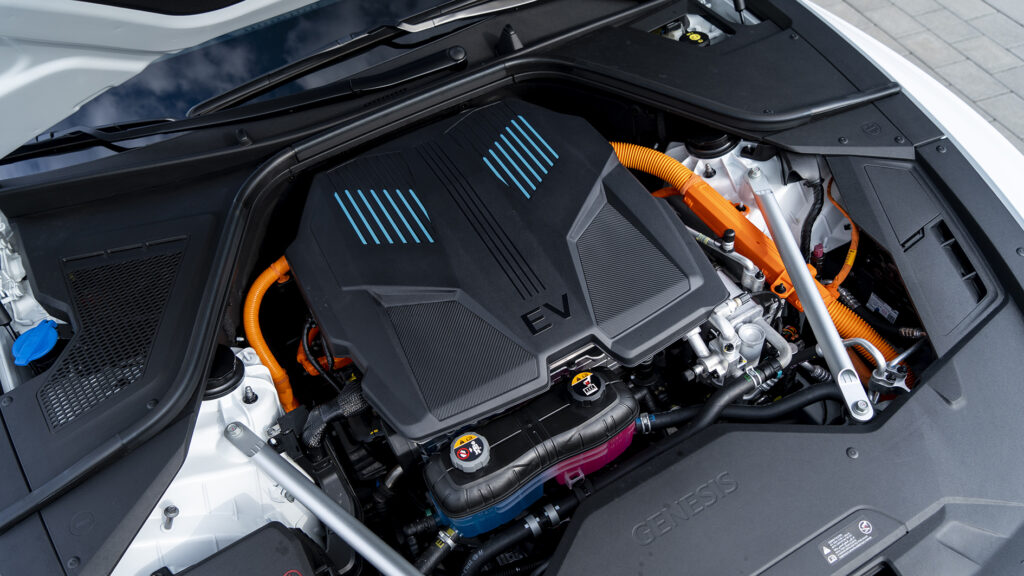
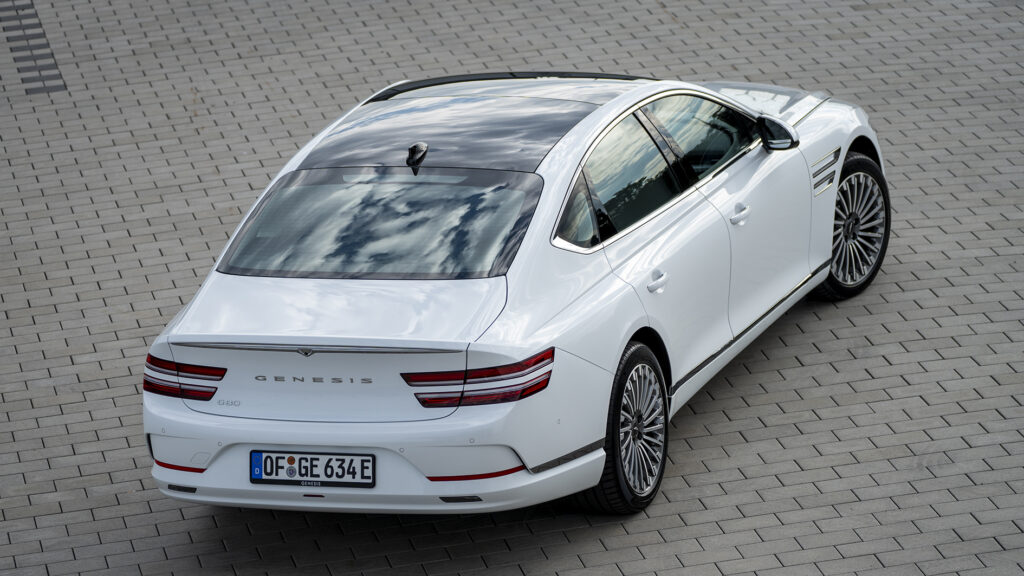

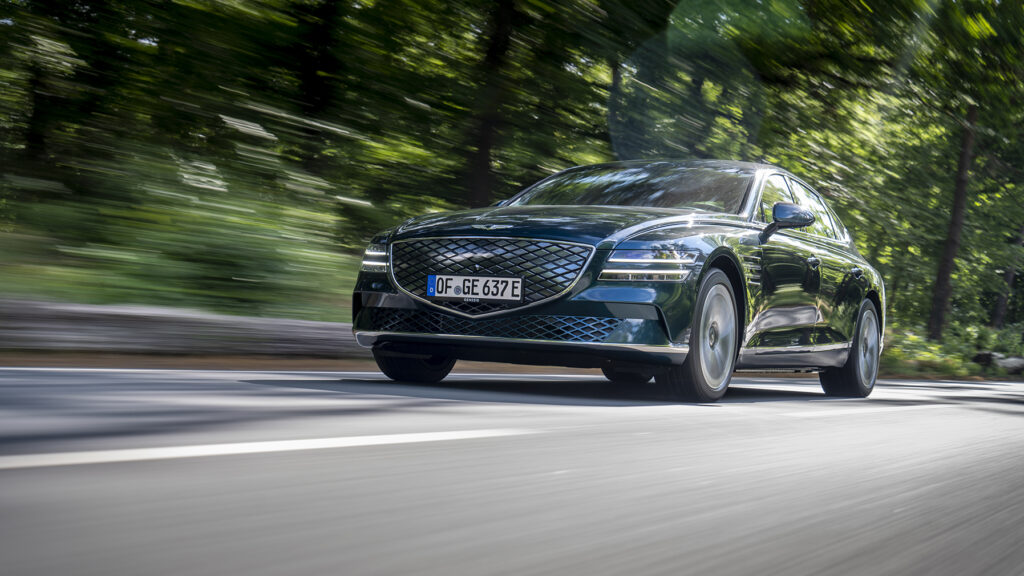
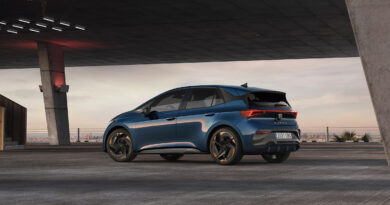
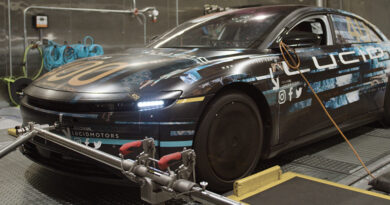
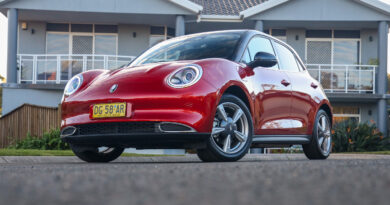
Thanks the article Iain.
It’s good to see more options in the luxury car space.
The solar panels might add 6 hrs x 200wh per day parked outside in full sun.
= 1.2Kwh = potentially another 4-5km range added.
Still, it’s better than nothing and could be a major selling point to support their product if they look at long-term outdoor parking where other EVs without panels or access to power would suffer.